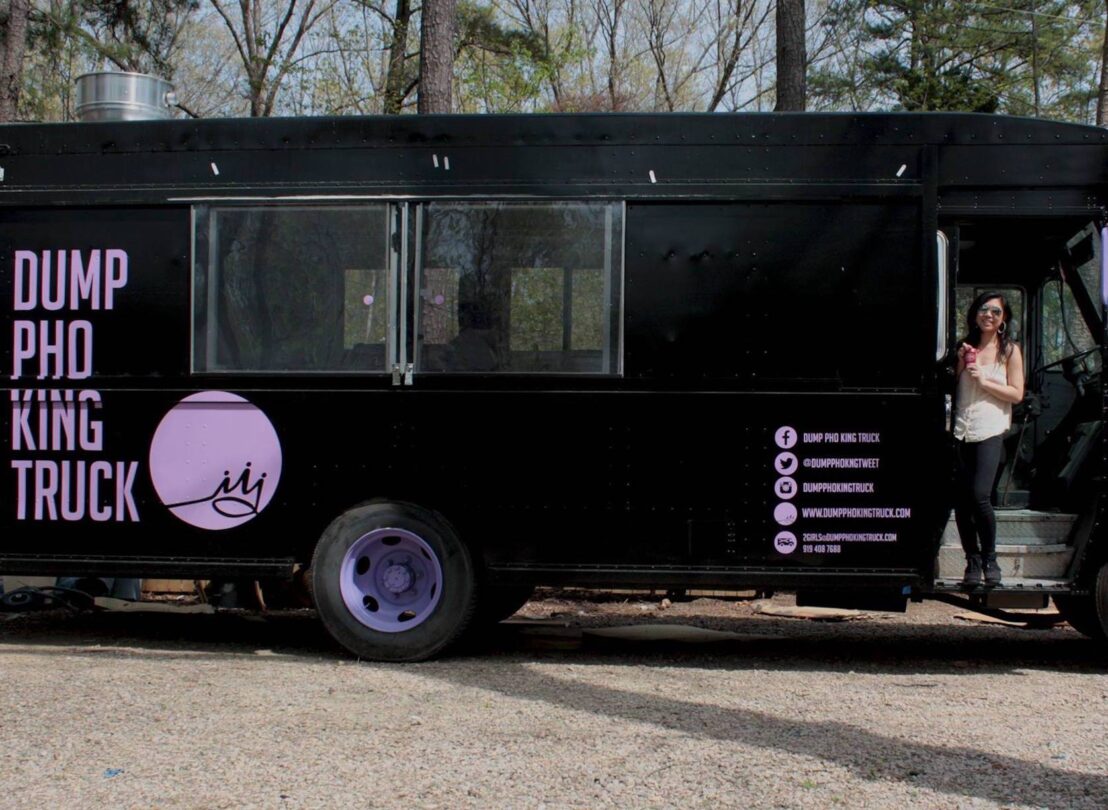Accountants
How an accounting background set up these 3 small business owners for success

What does accounting have to do with food trucks, purple yams and island economies? Sophia Woo, Christina Valenzuela and Lisa Arakaki are all former accountants whose back-office experiences help them run successful businesses in the chaotic restaurant industry. In ways, both common and unique, each businesswoman has applied her accounting skillset to her role as a small business owner.
We chatted with each entrepreneur to get a sense of how accounting has influenced their work in the restaurant industry. Here’s what we learned:
From the big four to four wheels
 Sophia Woo, co-owner of Raleigh’s Pho Nomenal Dumplings, hasn’t hit the brakes since opening her Chinese-Vietnamese food truck in 2013.
Sophia Woo, co-owner of Raleigh’s Pho Nomenal Dumplings, hasn’t hit the brakes since opening her Chinese-Vietnamese food truck in 2013.
After rebuilding a box truck that they found on Craigslist, Woo and her business partner, Sunny Lin, started slinging homemade pho and dumplings, won 2015’s The Great Food Truck Race, and this summer used their cash prize to open MOFU Shoppe, a permanent restaurant in downtown Raleigh.
“The truck was the end-all be-all plan, but then life happened,” Woo said. “That allowed us to grow.”
Woo earned an accounting degree from UNC-Chapel Hill, and after graduating spent three seasons as an auditor for PricewaterhouseCoopers. Though she ultimately decided that accounting wasn’t her strong suit, the experience in a structured professional setting taught her two practical skills: How to interact with customers, and how to navigate dense legal material.
Woo’s accounting experience gave her the confidence to go after her dream, and the professional poise to keep it going. But it also convinced her that she’s better off developing her strengths of working with customers and crafting mouth-watering menu items.
“Focus on what you’re good at,” she said. “And forget the stuff that you’re not great at—you can get someone to help you that.”
Baker, business owner, full-time CPA

Bistro 1521, the largest Filipino restaurant in the Washington, D.C. area, opened in late July to much acclaim. Christina Valenzuela is a part-owner in the venture with her husband, Jo-Jo, and for now manages the restaurant’s seasonally influenced dessert menu, which this month includes mango and ube, or purple yam, cupcakes.
She’s also a full-time accountant and business owner.
When she’s not supporting her three children as a federal auditor at KPMG, or helping out with the books and front-of-house duties at Bistro 1521, Valenzuela is either managing Figgypops, her popular cupcakes and cake topper business, or laying the groundwork for a small business accounting firm that will open in 2018.
And whereas Woo hopes to distance herself from the financials at her restaurant, Valenzuela aims to create a streamlined process for closing the books at Bistro 1521. Before moving to KPMG, Valenzuela consulted for small restaurants, many of which lacked a structured and easy-to-understand accounting process.
“Hiring someone who knows what they’re doing and will keep you compliant as far as taxes and reporting is the best first step that anyone can do,” she said.
On top of that, she wants to make sure the expert’s knowledge can be shared across the organization, so that anyone can understand and implement the process.
“I want to produce reports that the owners and managers can actually use,” she said, adding that solid financials in a restaurant are just as important as smooth operations.
At home in Honolulu
In 2016, Lisa Arakaki and Jody Morita, both CPAs with one of the mainland’s most well-known restaurant groups, left their jobs in Los Angeles to open Okalani Corner, a quaint breakfast and lunch spot in downtown Honolulu.
“I went from something very large to something very small,” Arakaki said.

Arakaki, an Oahu native, received a BBA in accounting from Gonzaga University and worked as a CPA for several years. After consulting for the restaurant group on a few projects, she joined full-time in 2001, eventually becoming a controller for the group’s casual dining division.
Arakaki’s core responsibilities—managing financial reporting for six restaurants and overseeing franchising and licensing for more than 60—required that she coordinate with other departments on a daily basis. Through these cross-functional interactions, Arakaki learned lessons about everything from food preparation to customer service.
“It’s very hard to go from accounting to operations,” she said. “So try to get your foot into what you want to do on the other side. Get into the restaurant. Work there a couple days.”
Though the accounting background has given Arakaki and Morita an advantage—Arakaki believes that Okalani Corner is exceptionally smart about pricing its products, especially given volatile produce prices on an island dependent on imports—the softer skills have allowed their business to flourish.
“It’s a totally different world from accounting,” she said. “And that’s the type of stuff we’re not taught at school.”





Ask the author a question or share your advice